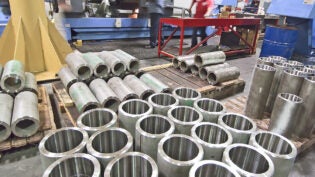
When a bonsai stops growing, you know it’s dead.
~Japanese Proverb
Continuous growth is critical for each and every business, but very often, existing markets get so rife with competition, it is almost impossible to grow. In these cases, a business’s only option may be to expand into new markets. This can be a very successful venture, but entering new markets can also be fraught with problems.
Most businesses have a pretty good idea of where their opportunities for expansion are. One option is to expand vertically, which means they would begin offering products or services provided before or after their current offerings. A retail-clothing store, for example, might get into manufacturing their own shirts rather than buying them.
Alternatively, horizontal expansion would take a company into a new market unrelated to their current product offering. An example of this would be a wholesale fuel delivery company going into the convenience store business.
Both vertical and horizontal expansion have potential, but any plan must be thoroughly vetted. The costs of getting into the new market must be weighed, and the resources needed for success must be determined beforehand.
Clearly, no one wants to enter a market where they will not be successful, and no business owner makes that move knowing it will not work. However, expansions are frequently unsuccessful, and I believe that is because many people think they can take their current model of operation and just overlay it onto a new market. This is a big mistake. Normally, new markets require a different skills and resources.
Related Article: Building a Culture of Growth
For example, one firm had done a great job as a wholesale supplier of conveyor belts. Within this niche, they had been able to capture a large share of the market. However, as the firm hit saturation in the market, its sales began to stall out, and they decided to expand into selling entire conveyor systems.
The firm was able to make arrangements to obtain the engineering and production requirements fairly easily. However, the firm failed to consider what would be needed on the sales side, and this oversight eventually led to the decision to abandon the expansion.
The mistake they made was deciding to use its existing sales force to serve the new conveyor systems. They quickly learned the existing sales force just did not have the technical skills or the ability to form the new relationships that are so necessary when expanding into any new market.
In contrast, a firm in the awards business, Awards4U, bought a business distributing awards and supplies for Rotary clubs. While this was a new market for this firm, the owner, Sam Varn, had enough experience in both areas of these markets to hit the ground running. This expansion was very successful because the owner hired the right people to do the job and he was committed to making it work.
Now go out and make sure you and your staff have the requisite skills and financials to be successful before you expand into a new market.
You can do this.
3970 Views












